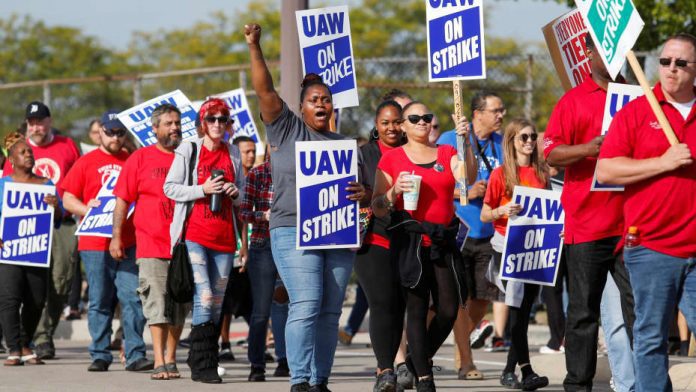United Auto Workers president Shawn Fain refused to back down in response to layoff threats at two manufacturing plants over the weekend, saying that the strategy “won’t work.”
Ford was the first to lay off workers in response to the UAW strike, temporarily placing 600 employees at its Michigan Assembly Plant on leave. Parts manufactured at the facility must receive a protective coating after leaving production, but employee walkouts had forced the site’s paint department to close. “Our production system is highly interconnected, which means the UAW’s targeted strike strategy will have knock-on effects for facilities that are not directly targeted for a work stoppage,” the company noted. General Motors has similarly alerted workers at its Fairfax Assembly Plant that it may be forced to cut 2,000 positions due to material shortages caused by the United Auto Workers strike. Stellantis has yet to announce any layoffs at its American facilities. Although automakers typically offer supplemental pay during factory shutdowns, the ongoing strike negates this offer. “Unfortunately, there are no provisions that allow for company-provided SUB-pay in this circumstance,” GM confirmed.
However, the union has promised to pay wages to laid-off workers until new contracts are signed. “Their plan won’t work,” announced President Fain in a statement. “The UAW will make sure any worker laid off in the Big Three’s latest attack will not go without an income.” The United Auto Workers chief also called the layoffs an attempt “to put the squeeze on our members to settle for less.”
Talks between the UAW and Detroit automakers are continuing at a slow pace, according to Fain, although OEM executives have said that progress has been made. Aides sent by the Biden Administration to assist in negotiations are expected to arrive soon. Roughly 13,000 United Auto Workers members are presently on strike, a number that the organization has threatened to increase should contracts with car manufacturers be delayed further.





